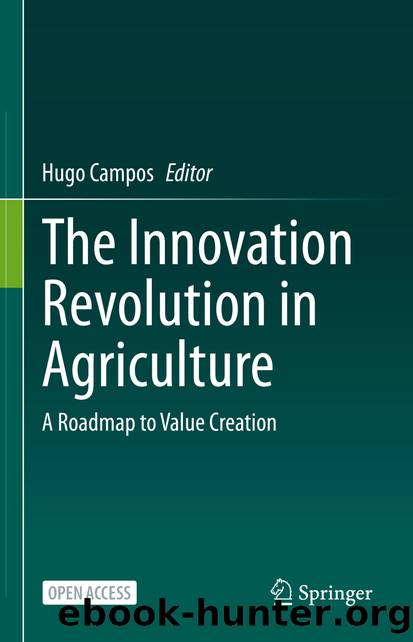The Innovation Revolution in Agriculture by Unknown

Author:Unknown
Language: eng
Format: epub
ISBN: 9783030509910
Publisher: Springer International Publishing
4.7 Concluding Remarks
While recent critiques of the notion of adoption emphasise the shortcomings of the technocentric and binary thinking that is often implied, this chapter has focussed on the limitations in dominant thinking about the process side of adoption and has broadened the scope by providing an interactional perspective. For a long time, adoption has been portrayed as a largely individual process that could be understood and influenced with the help of social-psychological models. We have argued that this kind of thinking ignores the existence and importance of vertical, horizontal, intra-individual and time-related interdependencies between practices, leading to the conclusion that in many instances, adoption must be regarded as a collective rather than an individual process. We have indicated how interdependencies may enter into an individualâs reasoning about adoption in various ways and have translated this into several additional variables that need to be considered when the aim is to explain adoption and behaviour change or the lack of it. Consideration of these variables has led us to develop an âinteractionalâ and âsociologically enhancedâ model for understanding âreasons for (non)adoptionâ. Subsequently, we have explored the practical implications of this mode of thinking by linking them to topical issues such as âscalingâ and the use âICT4Agâ in stimulating adoption. This exploration reveals that we can sharpen our thinking about scaling considerably by realising that scaling always involves an assemblage of different interdependent practices across a network of stakeholders in time and space, which necessitates critical thinking about points of leverage and issues of responsibility. Similarly, our exploration of the role that ICT4AG may play in the management of agricultural diseases has revealed that the enhanced model for understanding reasons for (non)adoption solicits the design of novel kinds of ICT applications and services that may support the creation of conducive conditions for collective action. Thus, moving beyond individualist conceptualisations of adoption not only represents a theoretical advance but also helps us to re-imagine and re-orient the kinds of interventions needed to shape adoption processes in support of realising a desired future.
Acknowledgements
This research was undertaken as part of, and funded by, the CGIAR Research Program on Roots, Tubers and Bananas (RTB) and supported by CGIAR Trust Fund contributors as well as by NWO and Wageningen University.
Download
This site does not store any files on its server. We only index and link to content provided by other sites. Please contact the content providers to delete copyright contents if any and email us, we'll remove relevant links or contents immediately.
| Automotive | Engineering |
| Transportation |
Whiskies Galore by Ian Buxton(41953)
Introduction to Aircraft Design (Cambridge Aerospace Series) by John P. Fielding(33100)
Small Unmanned Fixed-wing Aircraft Design by Andrew J. Keane Andras Sobester James P. Scanlan & András Sóbester & James P. Scanlan(32772)
Craft Beer for the Homebrewer by Michael Agnew(18214)
Turbulence by E. J. Noyes(7995)
The Complete Stick Figure Physics Tutorials by Allen Sarah(7346)
Kaplan MCAT General Chemistry Review by Kaplan(6911)
The Thirst by Nesbo Jo(6899)
Bad Blood by John Carreyrou(6595)
Modelling of Convective Heat and Mass Transfer in Rotating Flows by Igor V. Shevchuk(6416)
Learning SQL by Alan Beaulieu(6256)
Weapons of Math Destruction by Cathy O'Neil(6240)
Man-made Catastrophes and Risk Information Concealment by Dmitry Chernov & Didier Sornette(5972)
Digital Minimalism by Cal Newport;(5725)
Life 3.0: Being Human in the Age of Artificial Intelligence by Tegmark Max(5527)
iGen by Jean M. Twenge(5394)
Secrets of Antigravity Propulsion: Tesla, UFOs, and Classified Aerospace Technology by Ph.D. Paul A. Laviolette(5353)
Design of Trajectory Optimization Approach for Space Maneuver Vehicle Skip Entry Problems by Runqi Chai & Al Savvaris & Antonios Tsourdos & Senchun Chai(5049)
Pale Blue Dot by Carl Sagan(4973)
